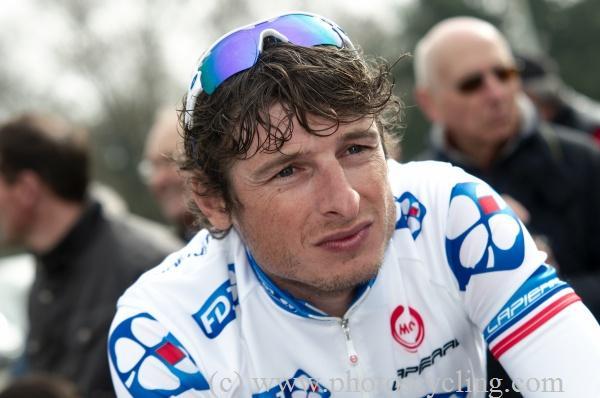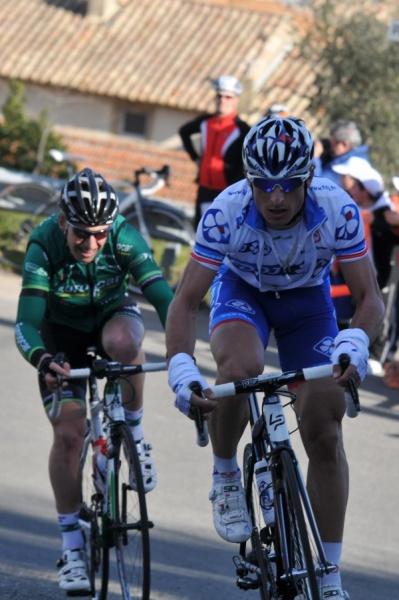Fédrigo puts illness behind him
First season at FDJ ruined by Lyme disease



Pierrick Fédrigo is hoping for better luck in his second season at FDJ after illness ruined most of his 2011 campaign. The Frenchman was stricken by Lyme disease and forced to miss the Tour de France, but he returned to action with a series of solid performances at the end of the summer.
“From the beginning of the season, I had noticed some changes in my state of health,” Fédrigo told Sud Ouest. “I was tired, I had some muscular pain. In persisting in racing, I asked more of my body than it could manage. I went beyond my limits. It was only afterwards that I discovered that it was due to my illness, but it was too late.”
Though Fédrigo’s symptoms began early in the spring, he was not diagnosed with Lyme disease until July, when he was sidelined from the Tour de France. The bacterial infection is transferred by ticks and Fédrigo initially believed he picked it up while hunting near his home in Marmande in south-western France.
“I’ve also got some animals at home, and I’m someone who loves to be in nature, so it’s not absolutely certain that it happened while hunting,” he said. “It’s a very hard illness to diagnose and it goes in cycles, it comes and goes. At the height of flu season last year, I thought that’s what it was.”
The symptoms of the illness made it difficult for Fédrigo to train and keep his morale up during the spring, and he struggled at the Ardennes classics. “I had a lot of fatigue and no motivation,” he recalled. “When I came back from a race, I wouldn’t touch my bike for four days. When I went back training, I’d ride for two hours and I’d come back feeling like I’d done six. I was wiped out.
“I was at rock bottom. At one point, I fell into depression. I didn’t want to see anyone anymore.”
When he was forced to miss out on the Tour de France, Fédrigo was somewhat relieved to be formally diagnosed with Lyme disease. After following a course of antibiotics, he was able to build towards the end of the season.
Get The Leadout Newsletter
The latest race content, interviews, features, reviews and expert buying guides, direct to your inbox!
“Even at a 100 percent, the Tour is hard, but in my state, it would have been suicidal,” he said. “It was during the third week of July that the illness was diagnosed, so I had had it for six months. The day when I knew exactly what I had, I was reassured to know that there was a real reason for my state.”
Fédrigo came back to racing at the Polynormande at the beginning of August, and enjoyed a return to form in the closing weeks of the season. “I felt straight away that it was going better. I could get in breaks and attack,” he said. “But to get from there to winning was a little too soon, I was missing race rhythm.”
Even so, he came close at the Grand Prix de Montréal in September, when he finished in second place behind Rui Costa, and ahead of Philippe Gilbert. “I was relieved, and of course that boosted my morale ahead of next season.”
Fédrigo will spend six weeks off the bike this winter before beginning training in early December. His 2012 campaign will get underway in February at Étoile de Bessèges, and the triple Tour de France stage winner hopes to return to La Grande Boucle in July.
“I’ve ridden eight of them and my aim is to do ten,” he said. “I’m 33 years old, and as long as I keep taking pleasure from it, I’ll keep riding.”

Barry Ryan was Head of Features at Cyclingnews. He has covered professional cycling since 2010, reporting from the Tour de France, Giro d’Italia and events from Argentina to Japan. His writing has appeared in The Independent, Procycling and Cycling Plus. He is the author of The Ascent: Sean Kelly, Stephen Roche and the Rise of Irish Cycling’s Golden Generation, published by Gill Books.